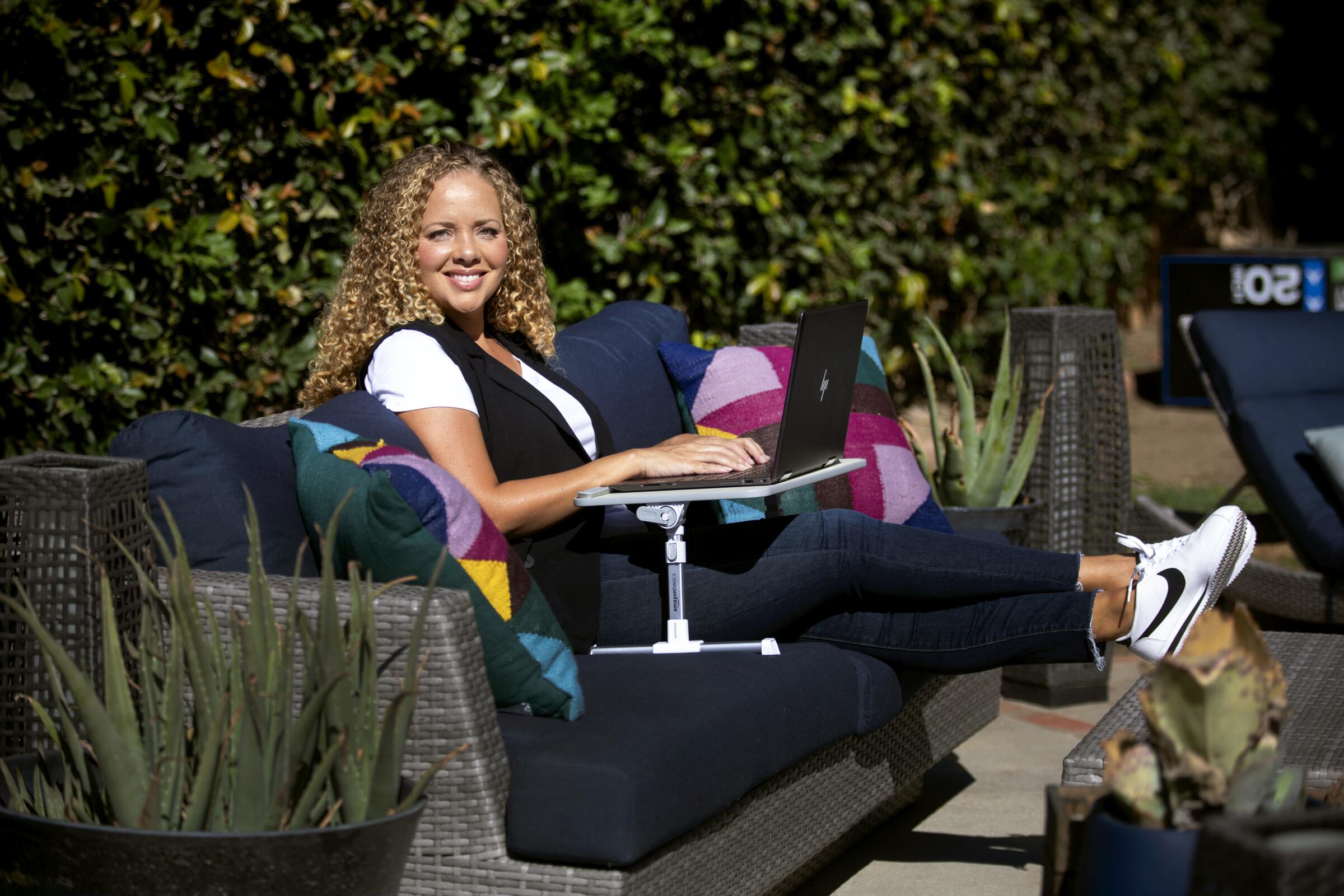Over the last 18 years, Natalie McAdams built Mar Vista-based NAMEvents beyond helping plan product launches, fashion shows and premieres, adding mega-happenings to raise money for nonprofits, including City of Hope, Heal the Bay and U.S. Veterans Initiative, a housing and service provider.
Each event was a closely packed, in-person affair with up to 10,000 participants. No more.
“No one was thinking it would go past July. But then it was like dominoes, every piece of business that I had was canceled by mid-April,” she said.
McAdams, 56, has had to seek out other ways to make money. She received PPP money, enough to last 12 weeks, which she has been able to use to pay herself because she proved to the government that she was also working as an independent contractor, not just as the head of a company.
McAdams has kept her business lean. She works from home, avoiding overhead for office space. She keeps her payroll low, and isn’t carrying one now because of lessons learned during the Great Recession, which stretched from December 2007 to June 2009.
“Usually it’s me and I’ll bring on a few freelance people to work as my staff,” she said. “There could easily be 50 to 75 people working on a project at any given time. I have trusted partners I use for all the different elements.”
To generate income now, she’s channeled her leisure-hours yoga passion, which she has practiced for more than 20 years, into small, virus-screened retreats using the event planning skills she honed for big social gatherings.
McAdams recently conducted the first of several planned yoga and wellness retreats, with professional instruction and catered meals, costing $1,500 to $2,250 a person. Eight women gathered at her parents’ Aspen, Colo., vacation home on a Wednesday night and wrapped up on a Sunday, and all involved were screened for the virus.
“I’ve been on thousands of yoga and wellness retreats and I’ve always wanted that to be something I could produce as well,” McAdams said. “The idea was to make a safe space for a small intimate group of people. I think it can give people a sense that they really can get away somewhere safe and just recharge.”
McAdams also has been working with the Beverly Center’s Angler restaurant to create an outdoor dining area.
“It’s similar to the temporary spaces we built for events, but permanent,” she said.
Many of her charity clients are hoping to start holding in-person fundraisers by June, McAdams said.
“There’s still a lot of management things that I’m doing for those events because we’ve put venues on hold. We booked things then which would be into the fall that now we’re moving to the spring,” she said.
But McAdams doubts it will be the same even after the virus problem has been solved.
“Things will be different,” she said. “I think that people will be doing much smaller events, at least at the beginning.”









